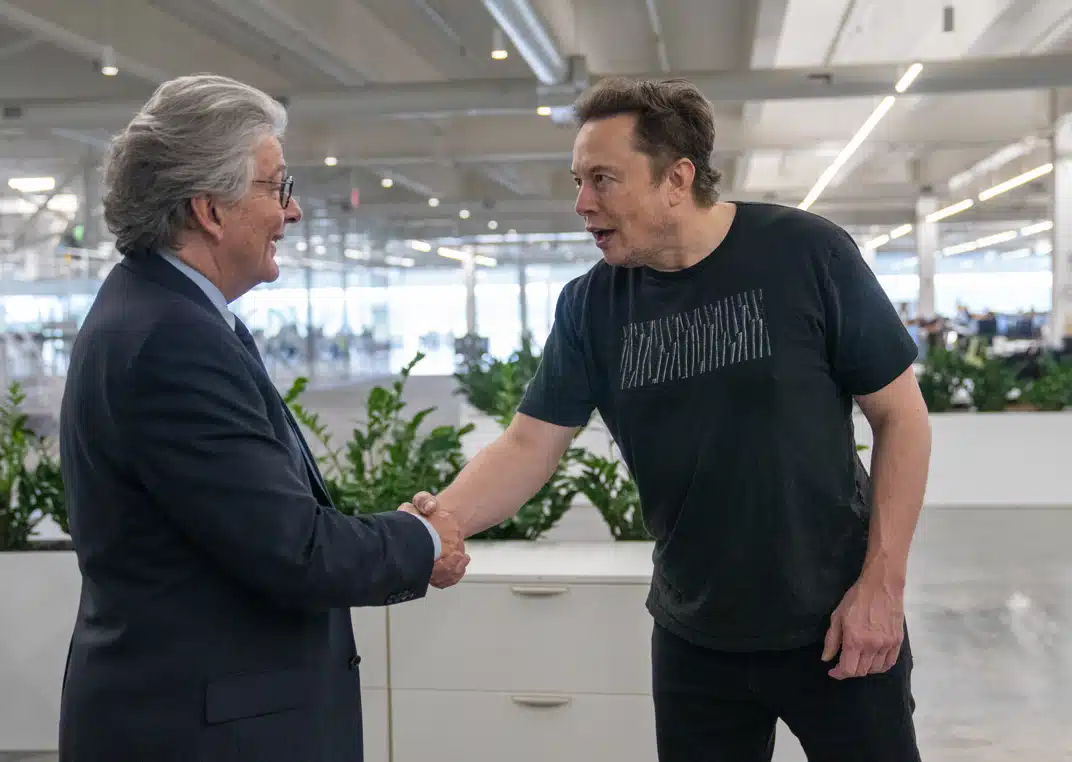Brussels – The first in-depth investigation into compliance with the new European Digital Services Act (DSA) concluded by the European Commission is already a very strong statement of intent. According to Brussels’ preliminary findings, the social network X, owned by Elon Musk, is violating European legislation. And it risks -if the Commission’s opinion is confirmed – heavy fines and the obligation to implement significant changes, the EU Internal Market Commissioner Thierry Breton warns.
Based on the contents of internal documents of the US company, interviews with experts, and cooperation with relevant national authorities, the Commission informed Musk of three violations. The first concerns the management of “blue checkmarks,” or verified accounts that usually belong to public figures. “Back in the day, BlueChecks used to mean trustworthy sources of information,” Breton recalled. However, X’s interface “misleads users” because–the Commission found–“anyone can sign up” to get the blue tick, even any “malicious actors,” and this adversely affects users’ ability to make free and informed decisions about the authenticity of the accounts and content they interact with.

The second allegation is the lack of transparency in advertising: X does not provide a “searchable and reliable” advertising repository. Instead, it puts some access barriers that make the repository unfit for its transparency purpose towards users. In particular, the Commission explained, the structure “does not allow for the required supervision and research into emerging risks brought about by the distribution of advertising online.”
Last but not least, the DSA set a high standard of “public scrutiny,” or the right of access to the platforms’ public data. A right that X denies: the former Twitter platform “prohibits eligible researchers from independently accessing its public data” and imposes conditions for accessing its application programming interface (API) that “dissuade researchers from carrying out their research projects” or leave them no choice but to pay “disproportionately high” fees.
Musk can review the Commission’s investigation file and respond in writing to the preliminary findings. Only after an eventual decision of non-compliance with the DSA could he turn to the Court of Justice of the European Union to avert fines of up to 6 percent of annual global turnover. However, this will probably be the first of many disputes between Brussels and the naturalized US-born South African billionaire. As EU executive sources admitted, this proceeding “will allow a better assessment of compliance with all other obligations under the DSA.”
Since it came into effect in February of 2024, the DSA has been stirring up the Boards of several Internet giants: in addition to X, the Commission has already initiated formal proceedings against TikTok, AliExpress, and Meta.
English version by the Translation Service of Withub


![La presidente della Bce, Christine Lagarde [Francoforte, 6 marzo 2025]](https://www.eunews.it/wp-content/uploads/2025/03/lagarde-250306-120x86.png)

![Un atomo. L'Ue punta sul nucleare di nuova generazione per il suo futuro energetico [foto: iStock]](https://www.eunews.it/wp-content/uploads/2025/04/atomo-120x86.jpeg)
